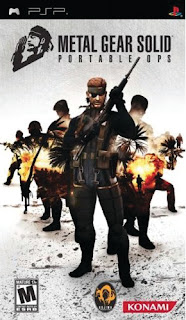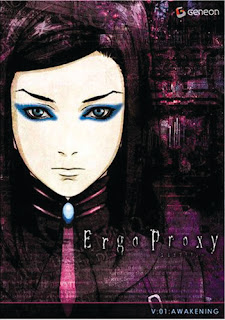As printed in The Northern Light newspaper
Jan. 30, 2007
Video games - along with rock 'n' roll, movies, television, rap, heavy metal, the Internet and everything besides bad parenting - are once again (or rather, still) being blamed for the problems of the world's youth. Germany, which already has heavy censorship of video games, recently urged the European Union to ban violent games and is itself trying to make virtual violence in games a jailable offence, according to Reuters news service and the Guardian newspaper. The cited definition of violent games includes games from the "Star Trek" and "Lord of the Rings" series.
Attempts at banning or restricting games continue in the United States as well. Friday, Jan. 26, a committee in the Utah House of Representatives voted to hold off on a bill (HB50) that would have made providing certain video games to minors a third-degree felony, according to the Desert Morning News. Audio recording of the hearing featured those for the bill expressing concern about the influence of violent games on children. Those against the bill pointed out that the bill doesn't even differentiate between businesses and individuals, meaning parents would face mandatory jail time for letting their child play a game that fits the bill's vague definition of violence. And if a 17-year-old boy wants to buy the Teen-rated "Call of Duty," it would be a felony - but if he turns 18 the next week, the army would have no problem teaching him to kill for real. The bill was held because the state's legal experts and its own Attorney General Mark Shurtleff felt the bill would likely fail any constitutional challenge, as similar bills have failed in other states. The committee is supposed to meet about the matter again.
Restricting certain games would likely stifle the game industry, as no retailer would risk being shut down for selling certain games to a minor. That would affect every gamer.
What all of these overreaching politicians fail to realize is that the average age of gamers is 33, and 93 percent of game buyers and 83 percent of game players are over 18 years old, according to statistics from the Entertainment Software Association. And seriously, $600 PlayStation 3s and multi-thousand dollar PC gaming rigs are not children's toys, and people should realize that just because it's a game does not mean it's targeted at children. Henry Jenkins, director of comparative studies at MIT, wrote an essay called "Eight Myths About Video Games Debunked," where he points out that no causal relationship has ever been shown between youth violence and video games, and that violence among youths is actually at a 30-year low. So there's just as much circumstantial evidence (which is all anti-gamers have) showing that video games actually decrease violence. He also debunks the myths of games being antisocial, desensitizing and without artistic merit.
If movies are allowed unrestricted free speech, with a rating system in place for parents, video games, which have a similar rating system, should have even more protection. Think about it: Gamers' experiences are based on their own actions, meaning the protected expression can be as much their own as it is the game maker's.
These attacks on video games are not really about protecting children, despite whatever rationale the politicians and concerned parents have. Maybe gamers used to be children, but they're grown up now and likely play games with their children that they feel are appropriate. It'll probably take another generation before politicians have a better understanding of games and don't act in such broad overreaching strokes as they try today. Until then, let's hope they turn their attention to some actual problems.
Saturday, February 03, 2007
Video Game Review: Metal Gear Solid: Portable Ops

As printed in The Northern Light newspaper
Jan. 30, 2007
While the original "Metal Gear Solid" pioneered the stealth action genre, the first two PSP entries in the franchise were card-based tactical games. With "Portable Ops," the PSP finally gets a game closer to its home-console counterparts. In fact, "Portable Ops" has the only directly connecting stories of the series, until "Guns of the Patriots" connects with parts 1 and 2. "Portable Ops," however, connects to the end of part 3, "Snake Eater," which put the player in the position of the legendary soldier who would eventually become Big Boss, the antagonist of the original Metal Gear series and genetic donor to series hero Solid Snake.
The storyline fits with the new team dynamic by showing how and why Big Boss, still known as Naked Snake, builds up his army of loyal followers. Rather than rendered cutscenes, the story unfolds through dynamically-drawn animated storyboards and features quality voice acting, including David Hayter reprising his role as Snake.
The stealth portion of the game features a fully 3D camera that most of the previous games didn't have, but the lack of a second analog stick makes the controls a little awkward still. To make up for this, weapons can auto target, and each character has a skill rating that determines the hit chance of their weapons. Players can also aim in first-person mode for sniping accuracy. But in this game, capturing enemy soldiers has the benefit of adding them to your team, with the possibility of 100 members, either as part of the medical team, surveillance team, technology team or active mission squad. While Snake will always have the best stats, capturing soldiers with different uniforms will allow those characters to blend in with like-dressed enemies, making certain missions much easier to complete in a stealthy fashion. Missions are appropriately sized for on-the-go PSP playing, and playing in different areas is encouraged by having different Wi-Fi hotspots act as automatic recruiting points for special soldiers.
"Portable Ops" also makes use of the Infrastructure mode for PSP's online play, connecting wirelessly to players worldwide. Online play has two team and two solo modes, with an optional mode that actually removes losing players' fallen soldiers and rewards them to the winners.
With its combination of role-playing elements and stealth action, "Portable Ops" is a must-have game for PSP users, and even those disappointed with the "Acid" series will find plenty to love as the game returns to the genre it pioneered.
“Metal Gear Solid: Portable Ops”
4 1/2 stars (out of 5)
Konami
Developed by Kojima Productions
Genres: Stealth, action, squad-RPG
Anime Review: Ergo Proxy (Volumes 1 and 2)

As printed in The Northern Light newspaper
Jan. 30, 2007
"Ergo Proxy" is a stylish science-fiction series that combines first-rate animation and seamless 3D to create an engaging mystery with elements of social and philosophical commentary.
The story starts in Romdo, a self-contained city where androids called AutoReiv assist in every aspect of society, including serving as companions or children, but are still treated as products. Immigrants also are considered lower class, but by serving the ruling establishment they have the chance to become Citizens. A computer virus known as Cogito (after "Cogito ergo sum") grants infected AutoReiv self-awareness, but the resulting disobedience makes them targets for destruction and scapegoats for a string of mysterious murders.
Jaded heroine Re-l Mayer (pronounced Ree-el) investigates one of the murders and stumbles across the real culprit, a monstrous being known as a Proxy. As she chases down just who or what the Proxy is, she uncovers a whole world she never knew about, with implications that could change everything.
Action scenes don't take any animation shortcuts, and the moody visuals add to the paranoid air of the show. The opening theme is a catchy U2-ish song that sounds almost Western (but isn't), and the ending theme is the appropriately named "Paranoid Android" by Radiohead, which both help set the tone for the show.
The first volume moves at a quick pace, not stopping for exposition but revealing just enough to not be too confusing, while slowly bringing out the larger mystery. The second volume focuses more on immigrant Vincent Law, who becomes a big part of Re-l's investigation, leading her to some big discoveries. The pace is also slower in the second volume, but there are several big developments in the story that move things along.
Besides the Cogito Virus, the show is littered with subtle inside references to science, literature and mythology - little touches that add something extra to the discerning viewer. "Ergo Proxy" definitely stands out above the average sci-fi anime, and the first two volumes don't disappoint.
“Ergo Proxy”
Vol. 1: 4 1/2 stars (out of 5)
Vol. 2: 4 stars (out of 5)
U.S. release: Geneon Entertainment
Produced by: Manglobe
Genres: Sci-fi, mystery, drama, action
Release date: Nov. 14, 2006
Subscribe to:
Comments (Atom)
